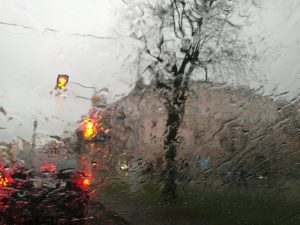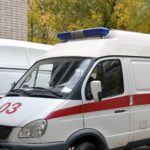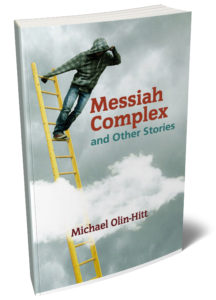I get off the school bus and don’t even have time to make ramen noodles because like BAM my mom takes me back to school. Mrs. Patterson called from the vice principal’s office. Totally a bad sign. The Patt wants a little parent to teacher confab. Some big problem with my essay about the day I was born. Writing a true story on something nobody can remember is a dumb assignment, anyway.
When we get to school, The Patt is like, “Josh, can you wait out in the hall a minute?” I’m a yo-yo strung to Mrs. Patterson’s finger. Go away. Come back. Go away. Come back.
So, I’m standing across from the poster of rules. “No Running, No Yelling, No Pounding or Kicking Lockers.” Like I would think of doing any of those things right now if they weren’t on the poster.
I peek one eye in the door of Mrs. Patterson’s room. My mom sits on Robby Henderson’s desk in the front row. Her legs are crossed and one sandal slaps the bottom of her foot when she moves her toes. That means she’s all irritated. Mrs. Patterson’s voice is like the jibber jabber of a TV in another room. I can’t make out what she’s saying. Probably that I’m a liar.
The hall is totally still. Strange still. I keep expecting voices or feet stomping, but there’s nothing. Like my grandmpa in his casket. The more I looked, the more I thought he’d start breathing and sit up, but he just stayed there. All waxy and still.
Mom leaves the Patt’s room and grabs my hand. She doesn’t say a thing until we get to the main doors. Then she just groans. It’s pouring down crazy, all streaks and puddles. We run through the rain to the car, and she says “shit” when she can’t find her keys. This is a serious indicator of upsettedness. When she drives, she taps the steering wheel at the red light, but she doesn’t peep a word.
The rain makes moon craters on the windshield, and the wipers sweep them away. A leaf is stuck in the windshield wiper, like a hand trying to shake free. It has veins and finger bones, and the skin is crumbling. If my father were dead, his hands would be like that. All dried up and thin in some casket.
them away. A leaf is stuck in the windshield wiper, like a hand trying to shake free. It has veins and finger bones, and the skin is crumbling. If my father were dead, his hands would be like that. All dried up and thin in some casket.
Mom reaches into her purse with one hand. The other hand is still driving. “Here’s your essay, honey,” she says. “It’s a fine essay.” She puts the essay in my lap. I don’t even want it.
Mom has short hair, like a man’s, but you can tell she’s a woman by the rest of her body. Even if all you saw was her face, you could tell because her neck is thin and her earrings dangle. Men don’t wear the dangly kind, unless they’re queen dragging. Some people say I look like my mom. The same eyes. The same smile. But the other parts of me belong to a man she knew when she was studying to be a minister.
“You just keep being creative,” Mom says. “Some day you’ll be a writer like Stephen.”
I bunch the essay in my jacket pocket. I don’t say it was supposed to be true. I don’t say, “What was I supposed to write?” Mrs. Patterson was talking about family stories. She wanted us to write our birth narrative. She was watching over the class. All bird nosed. Her timer was ticking. I had to write something. Randy Larson was all hunched over his paper, going at it. Scratching out his essay. I knew what he was writing. All about being born in a mini van. Randy has the actual car seat in his room. No kidding. Like a low, hard couch. Once I was at his house playing XBox and Randy was like, “I was born right there. Right where you’re sitting. My father was driving, but not fast enough.” I was like, “gross.” I stood up. I mean, seriously. That’s just not right.
I told Randy I never knew my father. He said, “How can you not know you own Dad?” I couldn’t tell him what I knew, so I just said, “He died. He died before I was born.” Ever notice that death ends people talking? Just like that. I learned that when my grandpa died. I miss him a whole lot.
Here’s what I know: When my mother was ordained, she was five months pregnant with me. I was a secret hidden under her robe. After that, I was like bubbles, then butterfly wings, then fingers tickling, then a miniature wrestling team having tournaments on her bladder.
Mom shoots me quick bird glances. “Sometimes being in trouble means you think in original ways,” she says. “But it’s not much fun. That’s for sure.”
I’m in trouble for the essay in my pocket. Mom’s in trouble for getting two men married in a hospital room. The hospital part isn’t the problem. It’s the two men part. It’s all legal for anybody to marry who they love now, but the Bishop keeps some rules in his cabinet about it that gets people in trouble. Anyway, I’ve seen my mom marry people in some totally weird places. Parks. Backyards. Even around a swimming pool once. They had candles floating in the pool. Seriously. Last summer Mom got married to Stephen in the park at the seminary. They stood in the gazebo behind the building where she teaches about religious women and the body of God and how Native Americans believe in nature. When they said, “I do,” Sophi became my stepsister. She’s one year older than me and goes to the same school. She wore a white dress and lacey white gloves that made her bright in the sun. I didn’t have to start calling Stephen “Dad,” and my mom didn’t change her last name because names are identities, and getting married doesn’t change who you are.
The rain is coming so fast now, the wipers can’t keep the craters away. It’s all a rumble. “They sky is falling,” my mom says. “The sky is falling.” She laughs. The leaf stuck in the wipers folds, then slips loose. It sticks to the windshield, flops over itself, then rolls away, like a wet butterfly.
At home, Steven is sitting at the dining room table, reading a book, and Sophi is there, too, clicking the mouse, playing cards with the computer. Under her blouse, her shoulder blades are strapped by a white line. I know what it is. My Mom is like, “Sophi is becoming such a young woman.” But I guess I’m still just a little kid.
Sophi flashes her imitation of the mom look. One eye squinted. Head turned. Lips tight. She’s like, “Heard you caught heat from The Patt.”
I don’t know why everyone calls her The Patt. It’s just always been like that. Somebody told me it’s because she looks like a Patt. So dumpy you can’t tell if she’s boy or girl. But I can tell.
Stephen says, “Sophi, what did I tell you?” The dining room is like a library now with piles of books and papers on everything because there aren’t enough bedrooms for an office since Stephen and Sophi moved in. Stephen’s glasses spin gold circles around his eyes. He has no hair on his head but has a short beard. It’s like an upside down face.
Sophi’s lips are red and shiny because Leslie, her real mom, said she could wear lip gloss when she started the sixth grade.
“Two messages, Miriam,” Stephen says to Mom. “But nothing from the Bishop or the Board of Ordained Ministry.”
“Just give them time,” Mom says. “They’ll get to me soon enough.”
Sophi pretends to watch the computer screen. “If it got Mrs. Patterson mad, it must have been bad,” she says.
“Sophia,” Stephen says. He doesn’t bother looking up from his book.
“It’s true,” Sophi says. “Last year, Nils Meyers spit a green honker down the stairwell and The Patt just shook her head.”
“Nils Meyers is lame,” I say.
Sophi twists in the chair. She’s like, “What did you do, Josh? Tell me.”
I walk down the back hallway. “I’m going to feed Hotstuff,” I say.
She’s still like, “Josh, what did you do?” And I hear Stephen say to leave me alone.
 I get the fish food for Hotstuff. He’s an angel fish. When there were other fish, he swam around like he was the hottest fish ever. All proud and straight, like he wanted to lead a tank parade. Then he chased the other fish and nibbled off their tales. Next thing we knew, Hotstuff was the only fish left. Mom was like, “He’s Hotstuff, alright.”
I get the fish food for Hotstuff. He’s an angel fish. When there were other fish, he swam around like he was the hottest fish ever. All proud and straight, like he wanted to lead a tank parade. Then he chased the other fish and nibbled off their tales. Next thing we knew, Hotstuff was the only fish left. Mom was like, “He’s Hotstuff, alright.”
Names are identities. Sophia is wisdom. Stephen is a guy who hung upside down for Jesus. Miriam is a dreamer. And Joshua is a Hebrew leader. Mom thinks it’s some sign or something that we all come from the Bible. I just think it’s weird. When I was little, I thought my Sunday School teacher said my name was “Juice.” I got all mad. I was like, “It’s Josh, not Juice.” I told Mom, and she laughed and laughed when she figure it out. She was like, “He said your name is Jewish. It’s a Jewish name.” She laughed more. Then she got on her teacher face and was all, “In Hebrew, Joshua comes from the same root as the name Jesus.”
I sprinkle fish flakes into the tank. They float on the water like crumbled leaves, and Hotstuff sucks them down in his little fish mouth. In the bottom of the tank, a pirate skeleton sits on a treasure chest. His bones are picked clean by bubbles from the chest.
My father is not dead. He’s a minister somewhere in Pennsylvania. My mom told me about it. He had a family in Pennsylvania and spent the weeks at the seminary. They lived next to each other in the dorm. Mom was like, “He made me feel special. Back then, I needed that.” Whatever that means. And she was like, “We graduated before I was showing, and I never told him. I kept you secret as long as I could.”
I have this picture in my head. I’m a tadpole swimming in my mother’s belly at her ordination. My fish eyes open wide, but her dark robe shuts out the candlelight and the eyes of the Bishop. I keep it quiet in my mom’s belly tank, little Dullstuff swimming in the dark.
When Stephen heard the story of the ordination, he said it meant that I’m pre-ordained. Stephen likes to play with words. He teaches about literature and writes poetry. Stephen told me that words have power. “Some people believe God created the universe with words, so playing with words is like playing with creation.”
But words can get you in trouble.
I grab the essay out of my pocket and smooth it out. It was supposed to be funny. Now, I’m feeling like an idio-ramous. I remember most of what I wrote, but I look it over, anyway.
be funny. Now, I’m feeling like an idio-ramous. I remember most of what I wrote, but I look it over, anyway.
My mother is the Reverend Dr. Miriam Indorf. She is not a body doctor. She is an idea doctor. I don’t have a father. When I was five months in my mother, I was pre-ordained. An Angel named me. I was born in a hospital, not a stable. All the doctors wore white robes. One of the doctors was an Angel of the Lord. They rapped me up tight in a blanket and laid me in an incubator. But not the kind Easter chicks come from. The baby person kind. The Angel doctor leaned down to my mother and whispered, “Name him Jesus Emmanuel.” His voice was like the wind. My mother didn’t understand. She only heard the root. She named me Joshua Emmanuel Indorf. Indorf is not my father’s last name. I don’t know his name. The name of my stepfather is Stephen. He says words are like God. Stephen is not a carpenter. But he did teach me how to use a cordless drill.
Sophi is outside my window. She is crouched on the woodpile like a cat. She scratches at the screen. She’s like, “Open it.” Her voice is mumbled by the glass. Her hair blows in her face.
I slide my window up. It has stopped raining, but you can still hear the drips from the trees and roof. They drop dead in the mud, and the world sounds big and hollow.
“The screen, too,” Sophis says. Her lips are pressed to the screen, little squares of lip gloss poking in. I’m hoping she doesn’t leave lip prints, like mom’s smudges on a wine glass.
“We’re not supposed to use windows as doors,” I say.
“Give it a rest, small fry,” she says. “I just want to talk to you.”
I slide the screen up, and Sophi leans in. “Rumor has it, you think you’re Jesus.” A hair is caught in the corner of Sophi’s mouth. She says, “Your mom said something about an essay you wrote and The Patt saying you have a Messiah complex.”
Sophi laughs like a machine gun. “The Patt was all like, “Josh needs counseling because he’s confused.’” Sophi says this through her nose, like she’s Mrs. Patterson. Then Sophi says, “Don’t worry. Your mom laughed about it.” She puts one leg through the window and tries to fit her head in. She’s like, “Comin’ through.” I totally don’t think she’s going to fit. She’s all folded over herself, and I’m all smiles because it will be hilarious when she’s stuck in my window.
“I’m practicing cat burglary,” she says.
She slips through and falls onto the floor. Her knee knocks my telescope over. I pick it up and try to make sure the lens isn’t broke, but I can’t tell.
Sophi stands and looks over the telescope, like she really cares. “Oops,” she says. Her hair has an outdoor smell, like leaves and rain. Under all that is the smell of shampoo and soap, then the smell of her, all warm and dark, like old coats in the back of a closet.
I’m like, “What the hell were you doing out there?”
Sophi does this half smile thing, then she’s like, “I’m testing the leaves. I thought I could finish raking, but it’s too wet.” She has a handful of leaves in her jacket pocket. She grabs me and stuffs them down my shirt. I’m all squirming to get away. My shirt stretches where she holds it, and the wet hits my chest and belly.
“See?” she says.
I’m going, “Sto-o-o-op. So-o-o-ophi.” I untuck my shirt and brush my hands over my belly. “Sometimes I hate you,” I say. And I mean it this time. She torture-ates me constantly.
Leaves fall to the floor, but some stick to me . Cold hands. Wet and dead.
“You’ll get over it,” Sophi says. She pulls the trigger on that machine gun laugh of hers, then she’s out my door. She slams it shut, and I hear the machine gun firing off all the way down the hall.
I pick off the last leaves on my belly and put my shirt down. I look at the mirror on the back of my door. I can see my father in all the parts of me that are not my mother, but my father doesn’t even know I was born. It gives me an empty spot inside, like an organ that should be beating in there, but instead there is a hole. A fish mouth sucking.
We all pile in the car to get dinner, but first we go to the hospital so Mom can visit Glen and Mark. Then it’s off to Chin’s Hunan. Everybody can get what they want there. The vegetarians and the carnivores. Sophi and me are the carnivores. Or I guess omnivores. Omni means everything, and God is all omni this and omni that. So, I guess We eat like God. Mom and Stephen eat like rabbits and birds. Technically, carnivores eat rabbits and birds so carnivores are totally superior to vegetarians, but I don’t say this to Mom and Stephen.
The sun is down and lights sweep over Sophi’s face. Under street lights, her eyelashes shine like icicles. The moon is coming up already, all blue and lonely. It follows the car, like it has something to tell us.
Sophi is like, “It’s not even winter yet, and I totally can’t wait for summer.”
“You’d better learn to love the whole year in Ohio,” Stephen says. “Winter is long, long, long here.”
Sophi used to live in California. Then her real mom, Leslie, went to Denmark with another woman. Stephen got a job in Ohio to start over. Now Sophi has like three moms and one dad because families come in all shapes and sizes.
I was born in Ohio, but I like summer, too. Last summer after the wedding, Sophi and me caught lightning bugs. Their wings were like eyelashes blinking in my hand. All night, they glowed yellow in a jar by my bed. I put holes in the lid and everything, but they were all dead in the morning. They stunk like the sticky batteries in my old flashlight.
Actually, Sophi didn’t catch lightning bugs at first. She swatted them out of the air. She slapped them down to the grass and watched their light glow and fade.
I was like, “That’s mean. They don’t blink when they’re down. The light just stays on.”
“It’s using up all its blinks at the end,” Sophi said. “They only get so many flashes.”
“That’s totally stupid,” I said.
She was like, “Nope. Add up all the time of its blinks, and you get the time it glows at the end. Like your heart. You only get so many beats, then it’s curtains.”
Sophi thinks she knows everything, but she doesn’t. “You’re full of it,” I told her.
“Full of what?” she said. She was like, “Might as well say it. Full of what?”
And I said, “Full of she-it.”
She was like, “She shit?”
I was like, “There’s she shit and he shit.” I was on a roll, and I kept it going. “She shit stinks worse than he-shit, and you-shit is she-shit.”
She gave that half smile that says she knows more than me or that I’m not funny.
She was like, “It’s totally true about the heart beats. That’s why you exercise. I learned it in health. When you’re jogging, your heart speeds up, but then the rest of the day, it beats slower than if you didn’t exercise. At the end of the day, you have extra beats saved up.” Sophi sat down and patted the grass next to her. “Let’s do an experiment. See who will live longer,” she said.
I lied down.
Sophi was like, “Time one minute on your watch,” and she put her head to my chest and counted heartbeats.
Trees stretched up over us, then the leaves, then the sky, and her hair brushed my chin. She smelled like shampoo, but under that she smelled like dirt. Dry, hard dirt.
When time was up, I had 64 beats.
When she was down, I put my head to her chest. I heard the chug, chug of her heart. One, two, three. Her breath went up and down. Her stomach growled and something bubbled in her. Four. Five. Then a double beat, maybe. I felt the breathing in my own body, then my heart was chugging in my head and my ears, and there was a tickle in me that reached down, all the way deep. It was in my chest and belly and shot down to my privates. And I opened my eyes and saw her white dress and the tickle rose up and cut my breath away. It was the first time I knew I wanted to marry Sophi. Even if she is a know-it-all pain in the butt-ox.
She was all like, “What do you mean you lost count?”
I should have lied. I should have just said, “Sixty four. Tie.”
I was like, “Your stomach was bubbling and there was a car down the street, and I opened my eyes and it all got mixed up. I was fine before I opened my eyes.”
She said I was an idiot, but she still helped me fill my jar of lightning bugs.
We’re in the parking deck at the hospital, and Mom is like, “Everybody just wait here. It will be quicker.” She gets out, and her heels are clicking and echoing in the garage.
Sophi asks, “Now, why are we here?”
“Mom is visiting a cemetery student,” I say.
Stephen is like, “That’s not so funny this time.”
Sophi leans over the front seat. “We’re on level three, but it still looks like a basement,” she says.
“That’s what a parking garage is,” Stephen says. “Stacked basements.”
I will add this to the Indorf list of definitions:
- The Holy Ghost is not God’s ghost. It’s God in motion.
- Radical is somebody who thinks for herself.
- Gay can mean happy or homosexual. For some, it means both.
- A partner is a life mate, like a double wife or double husband.
- Seminary is a place people learn how to make sense of cemeteries.
- Good Friday is only good because of what comes after.
- Philosophy is story problems without answers.
- In Religion, the stories are the answers.
- A call is God’s purpose for you. Usually long distance.
- A stroke is a short circuit in the brain.
- Paralysis is being locked in your body.
- D. is a body doctor. But a body doctor still needs ideas.
- D is an idea doctor, and an idea doctor still needs a body.
- An exceptional vegetarian is a vegetarian who makes exceptions and doesn’t grind her axe in other people’s kitchens.
- The rainbow is God’s spectrum of lover.
- A messiah complex is a lie about your birth.
- A parking garage is stacked basements.
Mom comes back to the car and she’s like, “It looks bad. I can’t leave them right now.”
“We can eat here,” Stephen says. “The cheese pizza isn’t bad.”
Some of the hallways in the hospital smell like under the kitchen sink. Others smell like a jar of dead lightning bugs. The last time I was in the hospital, it was to see Grandpa. He couldn’t move or talk. He had a tube running under his nose. The doctor said a stroke is like an earthquake. It can have aftershocks.
Grandpa never got out of bed after that. Mom said his body was forgetting how to work right. Little by little his body was forgetting. He already couldn’t swallow and maybe he would forget to breathe.
I watched him sleep, and I wanted to ask the doctor why it was so hard to remind a body how to work? After all, Grandpa’s body had plenty of practice. Somebody just needed to wake up his body and remind it how to be Grandpa again.
But nobody wants to hear a kid’s opinions.
When we get to Mark’s room, it smells all sweet and gaggy because of the flowers. Mark’s bed is by the window. There are more machines in the room than Grandpa had. One of them is clicking. Probably counting down his heartbeats. He turns his head to see us. His eyes are wet and yellow.
Glen sits by the bed. He wears a lumberjack shirt, and he needs a shave. He pats Mark’s hand. “Look who’s back,” he says. He stands up and hugs Stephen and Mom, then hugs Sophi, but gives me a fist bump. Glen and Mark always give me fist bumps. They know I’m not the huggy type. I turn to give Mark a fist bump in his bed, but his hands are so thin, like roots spread on the sheets.
The last time I saw Glen and Mark, they were having a party in a garden Glen planted at their house. There were wild flowers and paths of tiny pebbles and special chairs hidden in little nooks. Mom was like, “Glen is a gardener of the soul.” Mark carried a wine glass and held hands with Glen. They both wore shorts and white shirts that were not tucked in.
Now Mark’s mother sits in the corner of the hospital room. She has white hair and a puffy face. Actually, her whole body is puffy, like you could let some air out and get her back down to normal size. I remember her from the garden party. She says she’s so glad to see my mother. So, so glad. She gets up and hugs my mom. Then she starts to cry. Glen strokes Mark’s hair, and Mark’s eyes blink, then stay closed. He has a tube in his mouth and white tape makes an X on his cheek.
We join our hands, and Mom prays out loud. She prays for strength and courage and grace and for the touch of Jesus, the great healer.
And I think, Jesus could deal with this. He’s the best kind of doctor. He’s not a body doctor or an idea doctor. He’s a God doctor. His best friend was dead. Jesus was sad and cried, then said, “Come on out.” And there was Lazarus, rising from the dead, all wrapped up with the stink of three days on him. I bet the first thing he wanted was a good bath.
Glen pours a cup of water into a vase of roses on a cart, then picks up some petals and rubs them between his fingers. “I forgot how resilient rose petals are,” he says. He rubs the petals to Mark’s cheek. “They feel like vinyl seats in a car. Remember vinyl seats, Mark? The summer we drove to Ann Arbor?”
Mom puts her hand on Stephen’s shoulder. “Why don’t you get Josh and Sophi some pizza,” and off we go down the hall that smells like something sticky.
Stephen takes us to a waiting room, and he’s like, “I’ll get pizza and bring it here.” Stephen tells us to stay put, then goes off down the hall, leaving Sophi and me in a waiting room. There are regular chairs and super-size chairs for people who eat at McDonald’s every day.
Sophi slumps on a super-size seat and crosses her arms. “Great,” she says.
I watch her flop a magazine in her lap, and I think down the hall in room 307 is a man who is dying. He is not old like my grandpa. I wonder if his heart is using up all its beats, or if his body is forgetting how to work. But I know for a fact that those aren’t the real reasons people die. There are diseases, and people just get sick. Or their brains get stroked. There are too many reasons to die. Nobody knows why Lazarus died. He was sick and Jesus took his good old time to get to Lazarus. It was too late. But not for Jesus. And I wonder what an Angel Doctor or Jesus would do in a hospital like this. Would they just stroll through the rooms and touch people and say, “Get up and walk.” Is that all it would take to remind the people’s bodies how to keep working so no disease would come in and crap it all up?
Sophi stands up. She’s like, “I’m going crazy.” She’s like, “Let’s explore.” And I see in her eyes it will do no good to remind her that her dad told us to stay.
Sophi walks through the hallways like she knows exactly where she’s going. She keeps her head all up high and her back straight, but she’s clueless. We turn so many corners, there’s no way we’re getting back to the waiting room. Then there’s the elevator, and Sophi just has to push the button. The doors slide open, and Sophi hits the button for the lower level and is like, “The basement is where all the experiments and dead bodies are.”
I know she is making that up, but I get a moon crater in my chest, anyway.
Actually, there is no basement in this hospital because when the doors slide open, I’m looking out a window at an ambulance. I look down the hall. Emergency. I see the sign before Sophi does, but she has to read it out loud like it has an exclamation point.
 Then just like that, drama busts loose. An ambulance pulls up, all lights flashing and blinking. The drivers hop out and open the back, and a woman in a blue jacket jumps out and pulls out a stretcher with a woman on it. The stretcher woman has a black dress and gold earrings, but no shoes. They wheel her into the automatic doors and blast through another double door, and they’re gone down some hallway. Ba-bam. Just like that.
Then just like that, drama busts loose. An ambulance pulls up, all lights flashing and blinking. The drivers hop out and open the back, and a woman in a blue jacket jumps out and pulls out a stretcher with a woman on it. The stretcher woman has a black dress and gold earrings, but no shoes. They wheel her into the automatic doors and blast through another double door, and they’re gone down some hallway. Ba-bam. Just like that.
“See that?” Sophie says. “She was totally dressed up. Probably at some restaurant. It can happen anywhere.”
She turns around and heads back the way we came, but she passes the elevator. “Picture this,” she says. “A classy dining room. Someone dialed 911. They rush in and swarm on this woman on the floor. Maybe they shocked her heart to get it beating. `Clear,’ they yelled, and zap, she went all spastic. Maybe they put a tube down her throat. Maybe she’s allergic to peanuts and her lips went all blue and stuff, and they just gave her a shot to tell her body to chill out. It’s just peanuts. Maybe she was choking and somebody gave her the hemlock, and she spit a big piece of lobster tail clear across the room.”
We come to another elevator, and I push the button this time. Sophi doesn’t stop. She’s like, “And later, they’ll put it on TV. They’ll interview the doctor, and he’ll say, `When she first arrived, we didn’t have much hope. But she pulled through. It’s a miracle.”
The elevator opens, and I know darn well that none of those things Sophi blabbers about are miracles. All the stuff she just said. It’s all pretty normal. A miracle is something that can’t happen without God. Jesus did a lot of miracles. I wonder what it was like for him. Did he know how to count heartbeats to tell people had more living to do? Did he remind people’s bodies to get back to normal? I don’t know. Something happened when he touched people. His hands must have told him things so he could put the God stuff in the right place. When Jesus said, “clear,” it meant something more than “get away because I’m going to shock this woman till she flops like a fish.” A miracle means no gadgets. No shots. No oxygen tubes. No machines counting down the heart. No body doctors saying there’s nothing more to do but wait. No idea doctors saying they don’t have a clue. None of that. Just a touch and God. That’s a miracle.
I don’t think anybody in a hospital believes in miracles much. It’s all science and body doctors acting like they know what comes next. But they don’t know.
Sophi is lost as a blind mouse. She gets us in another elevator and pushes the button for the sixth floor, and even though I know we need to go back to the hallway with room 307, I don’t say a word. I’m holding out until she’s like desperate.
Finally, we end up in Palm-a-nation at a door you can’t get through without some pass. I’m like, “You want pizza? Follow me.” And she does.
I get us back in time for the pizza. Stephen is already eating. So much for worrying about your kid. Everyone else is there, too. Glen. Mom. Glen’s mom.
Glen says the nurse is doing something nobody wants to see. Stephen unfolds a newspaper and sits back in a chair for normal-size people. He says, “Here’s an article on you, Miriam,” and he’s like, “Did you do an interview with the Dayton Daily News?”
Mom presses her lips together.
Stephen holds the paper up in front of his face. “Here’s another person calling you a Neo-Transcendentalist.”
I’m like, “What’s that?”
Mom takes a sip from a Diet Pepsi can. “It means nothing I write hasn’t already been said.” She wipes her hands on a napkin and goes down the hall toward room 307.
Stephen decides it’s time for out-loud reading: “ ‘Ritual brings wholeness out of brokenness, that’s all I did.’ When asked if the United Methodist Church should condone same-sex marriage, Dr. Indorf answered, ‘I’m ashamed that my denomination is lagging behind the Supreme Court. The Methodists used to be leaders in social justice, and we have become stagnant judgmentalists.’ ”
Stephen folds the paper down to size and puts it on his lap. “That’s the one she’ll hear from the Board of Ordained Ministry. Right there. Leave it to Miriam to say exactly what’s on her mind.”
Glen is chewing pizza, but talks anyway. “If they revoke her ordination, will she lose her job?”
“No, she’ll still teach at the seminary,” Stephen says. “They can’t take away her Ph.D. and tenure.”
I look up. “Why are they so mad at Mom?”
“Not everyone is,” Stephen says. “Some people think she’s very courageous. A lot of people think that.”
Sophi has chowed down three pieces of pizza, and I’ve only had one. She’s like a vicious omnivore.
Glen wipes his mouth. “I’m sorry we got her into a mess,” he says.
“It was bound to happen,” Stephen says. “She knew she’d be asked, and she knew she’d say, “Yes.” And the fact that it was you and Mark. Well, that made it all worth it for her. For all of us.”
Mom comes back to the waiting room. “They’re not done yet,” she says. She sits down next to Mark’s mom and puts her hand on her puffy leg.
Mark’s mom looks at me and smiles. Then she stares off at the wall behind me. She’s like, “You know, we had Mark when I was forty-four. It wasn’t supposed to happen. I felt like Sarah. Way past my time. And there he was. We called him our God baby. We named him after his grandpa.”
My grandpa was named Rudolph. Like the reindeer. But everyone called him Rudy. I’m glad I wasn’t named after him. That would have been like seriously awkward.
A nurse in a blue outfit that looks like pajamas tells us he’s all done in Mark’s room. Everybody goes back to room 307, but me, Sophi and Mom stay put. Mom puts her arm around me. I snuggle up but put an annoyed face on so Sophi doesn’t think I’m a momma’s boy. Mom rubs my shoulder and pulls me close. Nobody feels like my mom. I’ve tested it. She has a feeling all her own.
“I’ll tell you about the day you were born,” she says. “It was a hard day with a good ending,” she says.
I don’t look up, but I know she’s looking down at me. I can tell it in her voice. I settle in close so I can feel her voice echo in her chest.
“I was in the hospital by myself,” Mom says. “No husband. No partner. No friends. Not even Grandpa because he was upset with me and wouldn’t talk to me.”
She squeeze me to her, but I already know that part, so I don’t look up.
“The whole time I was pregnant, I was on my own. I took myself to all the appointments. Bought all the baby furniture and bottles and diapers and clothes and blankets all by myself. And the day I went to the hospital, my body was tying itself into knots.”
“The twisting and pain wouldn’t stop. But my body wasn’t quite ready to push you out. So the doctor had me walking the halls of the hospital to get things moving along. I’d walk a few steps, then I’d bend over with those horrible knots. And I thought of you trapped in there. Getting squeezed and pushed, and I knew we were in this together. I couldn’t stop what was happening. And I knew the rest of our lives would be like that. I couldn’t stop life from coming and going, but we could be in it together.”
And I think of me and Sophi walking the halls of the hospital. How empty it felt inside me when one white hall turned into another. But for Mom, it was more lonely because I wasn’t there yet. I was still inside. Mom was like a two-in-one, but she didn’t know me yet.
And Mom says, “In the middle of the night, my body was finally ready. Then you came pushed out of me, and the whole universe opened. There was a quiet deeper than any quiet I’d ever known. They cleaned you up and put you on my belly. You looked at me with a little O-mouth, like you were saying, ‘Oh. That’s what you look like.’”
I see Sophi smile, and I make an O-mouth at her, and Mom is like, “They put you in a warmer because you were too little to keep warm, and you looked at me through the glass of that warmer with the same o-mouth. You just kept looking at me like that, and that was when I knew how beauty comes into this world. That anything good, anything from God comes through struggle.” Mom scratches her fingers through my hair. “I knew everything from then on would be different. The struggle now would be for both of us, but the beauty would be for both of us, too. And I knew we’d find a lot of people against us, and maybe nobody on our side at all, except God.”
There’s an announcement over the hospital speakers for some doctor. Probably more drama somewhere with somebody’s body winding down to stop. But I don’t want Mom to stop her story, and she doesn’t.
“That’s when I chose your middle name. I chose the only name I could. I already loved the name Joshua. The strong leader. But I knew if you were going to be a leader, you’d need God with you. And I needed God, too. We both needed God with us, Josh. Both of us.” She squeezes my body a little closer, and I look up at her. She’s looking down at me with her big eyes and her earrings dangle down toward my face.
“That’s a good story,” I say.
She smiles. She has the straightest teeth and biggest smile I know. She says, “Now we have a lot more than God and us. We have Stephen and Sophi and Mark and Glen and a whole lot of people who know how God comes into the world.” She rocks her body into mine. “They know the struggle and the beauty. You don’t get one without the other.”
We sit for a long time. Sophi moves to a regular-size chair and flips through a magazine with a picture of a cake on the cover. Mom doesn’t get up. She just sits there with her arm around me.
And I think, even if I’d known that story, I still would have had to make something else up for my essay. Mom’s story is too lonely and serious for Mrs. Patterson’s class. But I’m glad Mom told it to me.
I close my eyes, and I can feel all the commotion in the hospital. All the people who need help. All their families worried. All the doctors and nurses using science and ideas, and I can see myself walking through this maze someday, like I know every turn.
And I know for sure I’ll be a doctor when I grow up. Not a body doctor or an idea doctor, but a God doctor. I’ll go from room to room in the hospital. I’ll wear a white robe with my name on the pocket. Joshua Emmanuel. I won’t tell people stupid things like, “There’s nothing we can do,” or “We’ll let nature takes its course.” God made nature, so God can change nature. So, I’ll work with God’s words. I’ll help mothers push babies out, and I’ll let them know they’re not alone. Ambulance drivers will rush people to me. All banged up or dying. I’ll feel their chests. I’ll count the beats. I’ll keep my eyes closed so I don’t miss a thing. When the beating slows and pauses, when the chest sinks and doesn’t rise, I’ll lay my hands on the person. I’ll whisper to the body and remind it how to feel. I’ll use God-words, not nature- or science-words, and I’ll let God come, and I’ll feel the heart come back to life under my hands.
This story won the Prism Fiction Prize in 2016 and was re-published in Messiah Complex and Other Stories by Michael Olin-Hitt.
Complex and Other Stories by Michael Olin-Hitt.







I loved this story. Thank you!